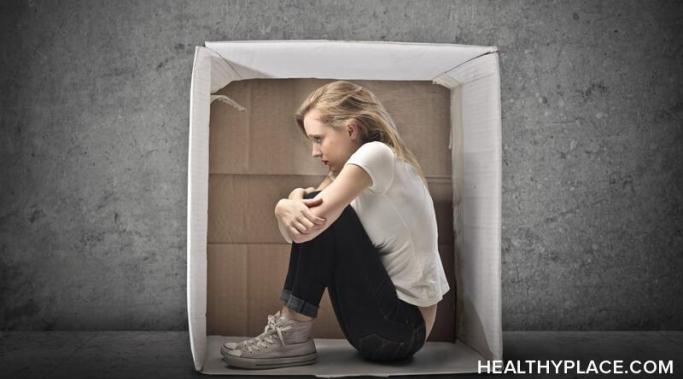Do you appreciate your successes, or does pausing to appreciate success scare you? Even though success is a very normal aspiration, feeling happy about a success (or feeling happy for any reason) can be scary for trauma survivors. The definition of success varies greatly between individuals and can even change during different stages of the same person's life. However, for those of us living with posttraumatic stress disorder (PTSD), the experience of success is sometimes a little extra complicated, even scary. I'm slowly learning to appreciate success in my life with PTSD.
PTSD Recovery Tips
Finding the right level of self-care for posttraumatic stress disorder (PTSD) shouldn't be that hard considering that self-care is a concept I read or hear about daily. The Internet is replete with self-care checklists and ideas for busy parents, overloaded students, and almost every mental health condition ever diagnosed. However, balancing my level of self-care with PTSD becomes lopsided because self-care frequently presents as an activity or item that is considered to be a treat. Manicures, chocolates, long baths, and time to read are common self-care suggestions. Personally, I find self-care to be more complicated, as it is not always about taking it easy on myself. Here is why I balance my indulgence level of self-care with PTSD against challenges.
Everyone experiences trauma differently, but one fact is universally true: trauma is unfair. Living with posttraumatic stress disorder (PTSD) is also unfair. Nobody deserves to be traumatized. So how do we heal from something that should never have become our burden in the first place? How do we deal with unfair trauma?
There will always be unavoidable triggers on our posttraumatic stress disorder (PTSD) journey. While we can become skilled at avoiding some PTSD triggers, coping with many other triggers, and adept at implementing self-care, there will still be times when our most challenging PTSD triggers are unavoidable.
When someone who has posttraumatic stress disorder (PTSD) tells you about the illness, she also entrusts you with an important piece of her life. For most people, having PTSD is not something that pops up in casual conversation. Even for someone who has PTSD who is ready to talk about their experience fears the possible unsupportive response. I'm convinced that in most situations, people simply don't know how to react to PTSD disclosures, and are reluctant to ask. Here is what I'd like everyone to about talking with someone who has PTSD.
I have experienced a lot of negative self-talk around my posttraumatic stress disorder (PTSD). Before my PTSD diagnosis and therapy, my daily life was filled with stress and feelings of worthlessness. I had lived with my anxieties, depression, and dissociation for most of my life. I had no frame of reference for what life could be like without these symptoms. I had to reach a point where I was unable to do anything but sit on the couch and obsess over imagined diseases and an untimely death before I sought out a professional. Even then, I had a difficult time allowing myself to heal as if I wasn't significant enough for help. Here are some things I wish I had known about negative self-talk and PTSD when I first began reaching out for assistance.
My memories lost to dissociation come from having experienced prolonged traumatic abuses as a child. I developed the protective reflex of dissociation at an early age. Dissociation was my response to frightening, harmful, and unpredictable environments. I learned to tune out and shut down mentally while still being able to respond to my surroundings to function in the moment. I don't know this because I remember it. I know this because other people hold memories for me. Here is how I began reclaiming my memories lost to trauma-related dissociation.
I lived with posttraumatic stress disorder (PTSD) for almost 22 years before I received treatment for posttraumatic stress disorder. After five years of therapy, I healed enough to consider myself living in PTSD recovery. However, I still have symptoms that require maintenance, depression being the most notable. No magic formula exists to cure PTSD, but I have coping skills to manage my symptoms. Let's look at the reality of living in PTSD recovery, and the myth of being cured.
In the field of mental health, the phrase trauma-informed care refers to a set of standards practitioners follow when treating individuals who have experienced trauma. Trauma-informed care reduces the risk of causing inadvertent harm to or retraumatizing people with posttraumatic stress disorder (PTSD). Understanding the basics of trauma-informed care can help you make the most out of your PTSD therapy.
If you experience posttraumatic stress disorder (PTSD), you are eligible for workplace accommodations under the Americans with Disabilities Act (ADA). While not everyone with PTSD will require accommodations, there are many options available for dealing with fatigue, stress, poor concentration, memory loss, and anxiety. Read about these workplace accommodations for employees with PTSD.









